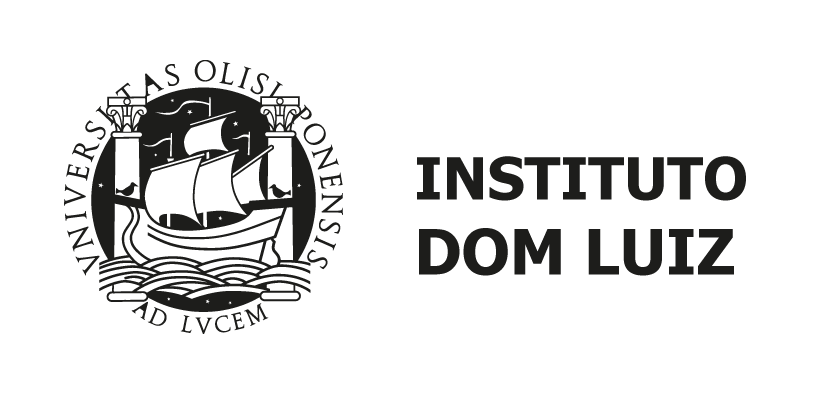Earth Systems Summer School 2024
Land-Atmosphere-Ocean Interactions in a Changing Planet: A hands-on approach to Earth observation and modelling
Who
For PhD students and other post- graduate students in all topics of Earth System Science, including Meteorology and Climate, Physical Oceanography, Geology, Geodesy, Geophysics and Environment.
Location
Lectures and Practicals at Aveiro University; Field activities in Aveiro Lagoon, Geoparque Arouca and Vagueira Beach
Course Description
The summer school will include lectures, hands-on sessions and field trips on various topics of Earth Systems. We will focus on the dynamics of and interactions between the different spheres of the Earth: solid Earth, ocean, atmosphere and biosphere. Lectures will focus on state-of-the art research and recent advances. Hands-on sessions will include observation, field work, and data analysis. The topics of hands-on sessions will cover atmospheric processes, coastal environments, oceanic and estuarine dynamics, geophysics & geodynamics, and machine learning. Field work includes both land and ocean observations.
Applications
Pre-application deadline: 1/Mar/2024. For applications received until this date, the organization will prioritize candidates in the two first years of their PhD programs. We will also aim to maximize networking between students from different scientific areas and institutions. After the pre-application deadline, applicants will be selected on a “first come, first served” basis. Final deadline: 31/May/2024. Applications should be sent by email to earthsystems@fc.ul.pt. Applications must include the applicant’s CV and a short motivation letter from the candidate, including the title of the PhD, supervisors and year of PhD. Maximum number of students: 35.
Fee: 300 euros
The fee includes the registration, lodging in university student accommodation, lunches, dinners and field trips. All other costs, including traveling to the venue, must be covered by the students.
Lecturers
Opening Address by Sierd Cloetingh, Geosciences & Tectonics, University of Utrecht
João Miguel Dias, Physical Oceanography, CESAM & Aveiro University
Francisco Doblas Reyes, Climate Modelling, Barcelona Supercomputing Center
Wouter Schellart, Geodynamics, Vrije Universiteit Amsterdam
Juan Picos, Forest Fires, Vigo University
Ágata Dias, Marine Georesources, IDL & FCUL, Lisbon University
Alexandra Paz, Geology, Geoparque Arouca
Caroline Ferreira, Physical Oceanography, IDL & ARDITI
Daniele Bortoli, Atmospheric Physics, ICT & Évora University
Davide Gamboa, Marine Geology, CESAM & Aveiro University
Emanuel Dutra, Climate Modelling, IPMA & IDL
Flávio Couto, Atmospheric Sciences, ICT & Évora University
Henrique Duarte, Marine Geophysics, Geosurveys
Isabel Trigo, Remote Sensing, IDL & IPMA
Joana Ribeiro, Environmental Geology, IDL & Coimbra University
Luís Matias, Seismology, IDL & FCUL, Lisbon University
Magda Sousa, Physical Oceanography, CESAM & Aveiro University
Maria João Costa, Atmospheric Physics, ICT & Évora University
Mário Abel Gonçalves, Geochemistry, IDL & FCUL, Lisbon University
Marta Neres, Geophysics, IDL & IPMA
Miguel Neves, Seismology, GeoAzur Nice
Miguel Potes, Atmospheric Physics, ICT & Évora University
Nuno Vaz, Physical Oceanography, CESAM, & Aveiro University
Paulo Batista, Marine & Coastal Geology, CESAM & Aveiro University
Paulo Silva, Physical Oceanography, CESAM & Aveiro University
Pedro Costa, Coastal & Marine Geology, IDL & Coimbra University
Pedro Miranda, Meteorology, IDL & FCUL, Lisbon University
Pedro Mocho, Paleontology, IDL & FCUL, Lisbon University
Rodrigo Amaro e Silva, Solar Energy, Centre OIE - MINES Paris
Rui Salgado, Atmospheric Physics, ICT & Évora University
Sara Silva, Machine Learning, LASIGE & FCUL, Lisbon University
Susana Custódio, Seismology, IDL & FCUL, Lisbon University
Vanda Salgueiro, Atmospheric Physics, ICT & Évora University

